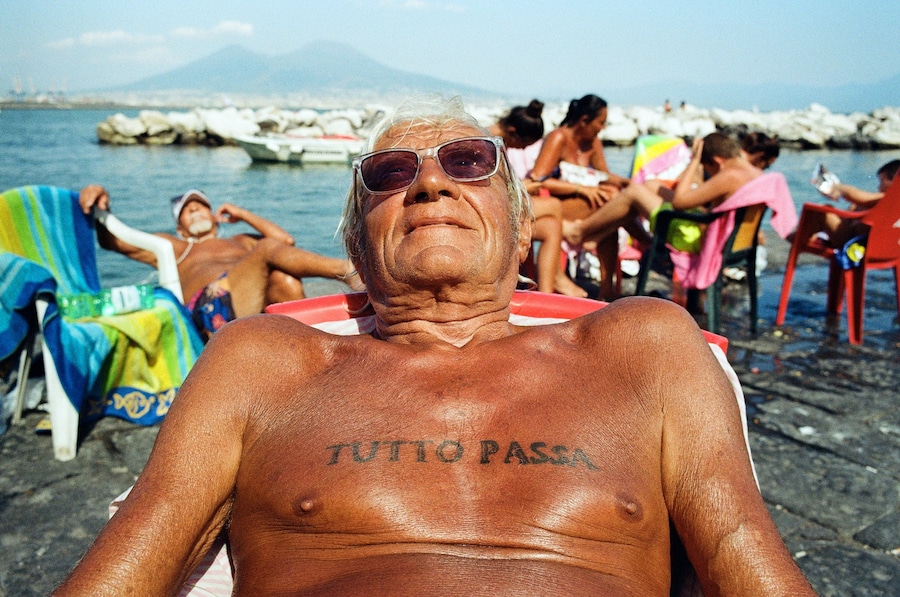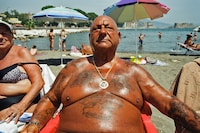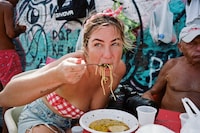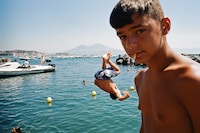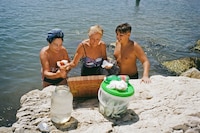The photographer’s series, On The Beach, documents the febrile chaos of Neapolitan beach life
“Come meet ‘Chicken Legs’ Franco,” says the photographer Robbie McIntosh, gesturing towards a manned sunbed on the rocky seafront of Naples’ Santa Lucia district. Franco, tanned to a leathery gold and nicknamed for his spindly frame, rolls up from his recline to shake my hand. His friend ‘Tutto Passa’ lies nearby – a local legend I’m told, in part thanks to McIntosh – named after the tattoo fading across his chest. Translated as “everything passes”, the phrase has come to symbolise the Neapolitan attitude: laid-back, weathered, and resilient.
“The beach is full of actors and full of stories. It’s a stage, an amphitheatre,” says McIntosh. Since 2012, the self-taught photographer has walked the coast of his hometown with his Leica 35mm film camera, documenting its shifting cast of characters for his ongoing series, On the Beach. The project evolved into a photography book, which was recently published in its third edition. “It all started with curiosity,” he explains. “I always wondered what the city was like in the 1960s, 70s, and 80s. When I asked the elders, they told me incredible stories of the beaches – of gatherings, people eating, getting drunk, passing out, and waking up hours later covered in rats.”
In McIntosh’s Naples, kids kick footballs dressed in Maradona football shirts. Tattooed lovers doze tangled atop one another, the outline of Mount Vesuvius in the background. Old-timers like ‘Chicken Legs’ blissfully while away their retirement under the southern Italian sun, their skin mapped by time. McIntosh shoots close – close enough to see every wrinkle, every false eyelash, every smudge of lipstick. His angles shift restlessly – above, below, sometimes so fully frontal, you’re practically straddling someone’s lap.
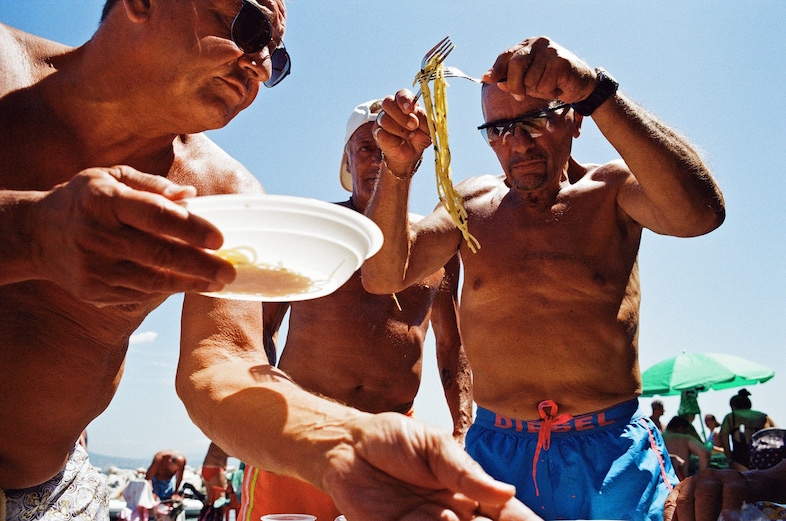
“One thing you cannot see from my photographs is the noise, the smells, the shouts, the sweat,” he says. Walking around, you hear the crackle of pocket radios broadcasting football updates, and the scent of cigarette smoke curling from the hands of the young and the old. There’s water bombing, shrieking and laughter. About the only thing you can’t smell in these scenes, the Brit in me thought, is the presence of suncream.
Still, McIntosh’s photographs convey far more than a day at the seaside. They offer a full cross-section of Neapolitan life: pensioners, teenagers, families, loners, lovers, tourists and locals sharing the same patch of coast. In a city grappling with chronic unemployment, volcanic threat, and the long shadow of the Camorra, the beach becomes a kind of leveller – a site where class, age, background, and the contradictions of Italian life come together. “It was a hard life in the 80s,” Tutto Passa explains. “I had a lot of misfortunes in my life. I tattooed this because I was destroyed. When I’m alone at the beach, I’m amused … but when I’m at home, I always want to cry.”
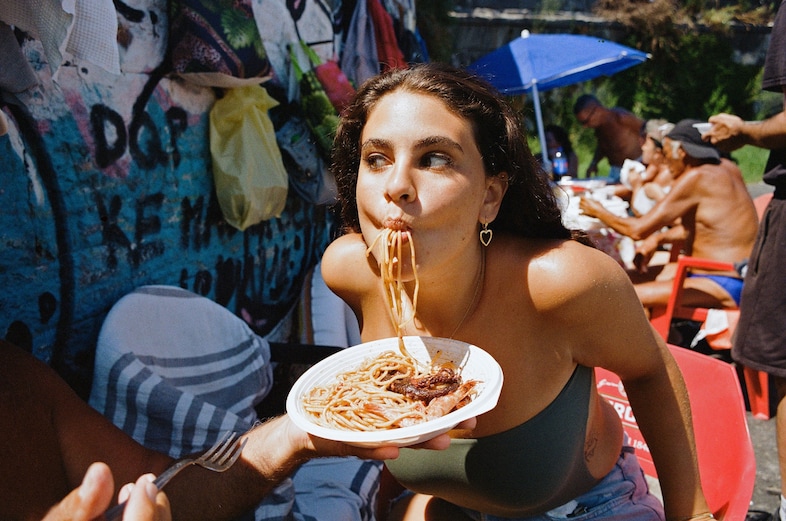
A cluster of shrines lines the curve of the back wall. Naples is full of them; wander through the city’s Spanish Quarter or Pallonetto and you’ll find hundreds of these votive offerings, or ‘altartini’, dedicated to the Madonna, Maradona, and other local saints. But these were different. They paid tribute to the locals who had passed – the regular cast of characters who’d made this rocky outcrop their home. McIntosh’s photographs, too, preserve the lives that define this place; documenting the present before it disappears. Like the fading tattoo across Tutto Passa’s chest, his images are reminders of life’s impermanence, our capacity to endure, and the beauty to be found in simply being here.
On The Beach by Robbie McIntosh is self-published and is out now.
